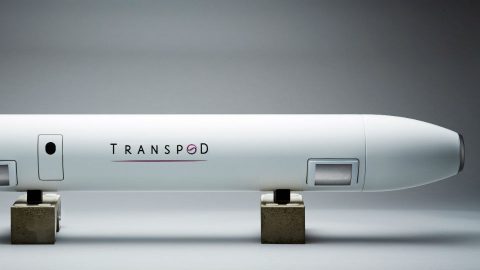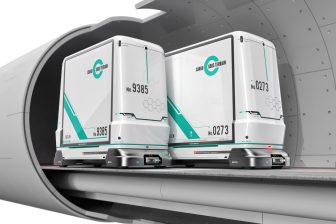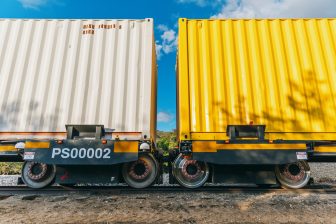
Canadian startup Transpod tests rivalling hyperloop technology in France
The Canadian start-up company Transpod is planning to set up a centre to test its high-speed rail technology in the French village of Droux. The company wants to develop hyperloop technology to connect Marseille and Paris in less than 40 minutes. It is investing 21 million Euros in the project.
Transpod wants to partner up with General Electric and national railway company SNCF. It will contract several researches and engineers to analyse the test results. The Canadian start-up plans to install a test track of the first subsonic train or hyperloop in a small town of Limousin, while the first commercial lines are scheduled for 2030.
Unique technology
Transpod has been developing its own high-speed rail technology. The Canadian company started in 2015 and its vehicles are designed to travel through a tube guideway which is similar to a hyperloop system, with variations based on magnetic levitation rather than air bearings to promote vehicle stability.
There are several similar installations in Spain, Italy and the Netherlands of other companies which are trying to be the first in creating a passenger or freight train based on the technology. One of these companies is Virgin, after Elon Musk launched the initial idea in 2013. Transpod rivals with the research centre built by the California-based company Hyperloop Technologies, which settled in Toulouse in April 2018.
Welcome initiative
The centre in Droux village in the centre-west of France comes as a delight to technology enthusiasts, such as the deputy mayor of Limoges, Vincent Léonie. He said to be delighted to see that in a decade, technology can make humans and goods travel on earth at the speed of a plane, with the pace of a subway.
In Morocco, a high-speed rail project is currently being tested and will soon see the light of day. The opening of the high-speed line (LGV), which will connect Tangier to Casablanca in two hours is scheduled for the fourth quarter of 2018. The project, at a cost of 22.9 billion dirhams (about 2 billion Euros), was financed for fifty per cent by French loans. It will be the first TGV in the Arab world.




